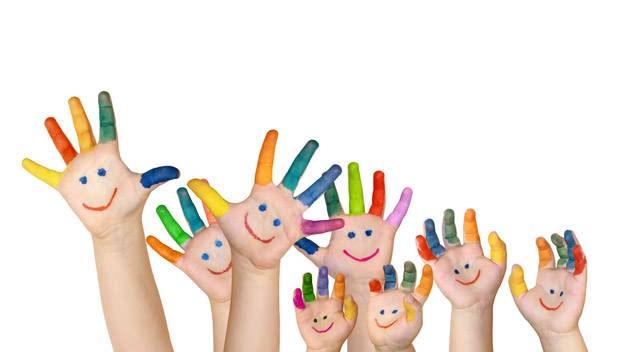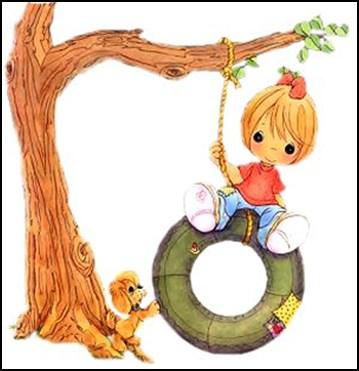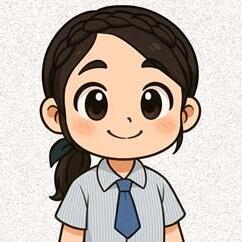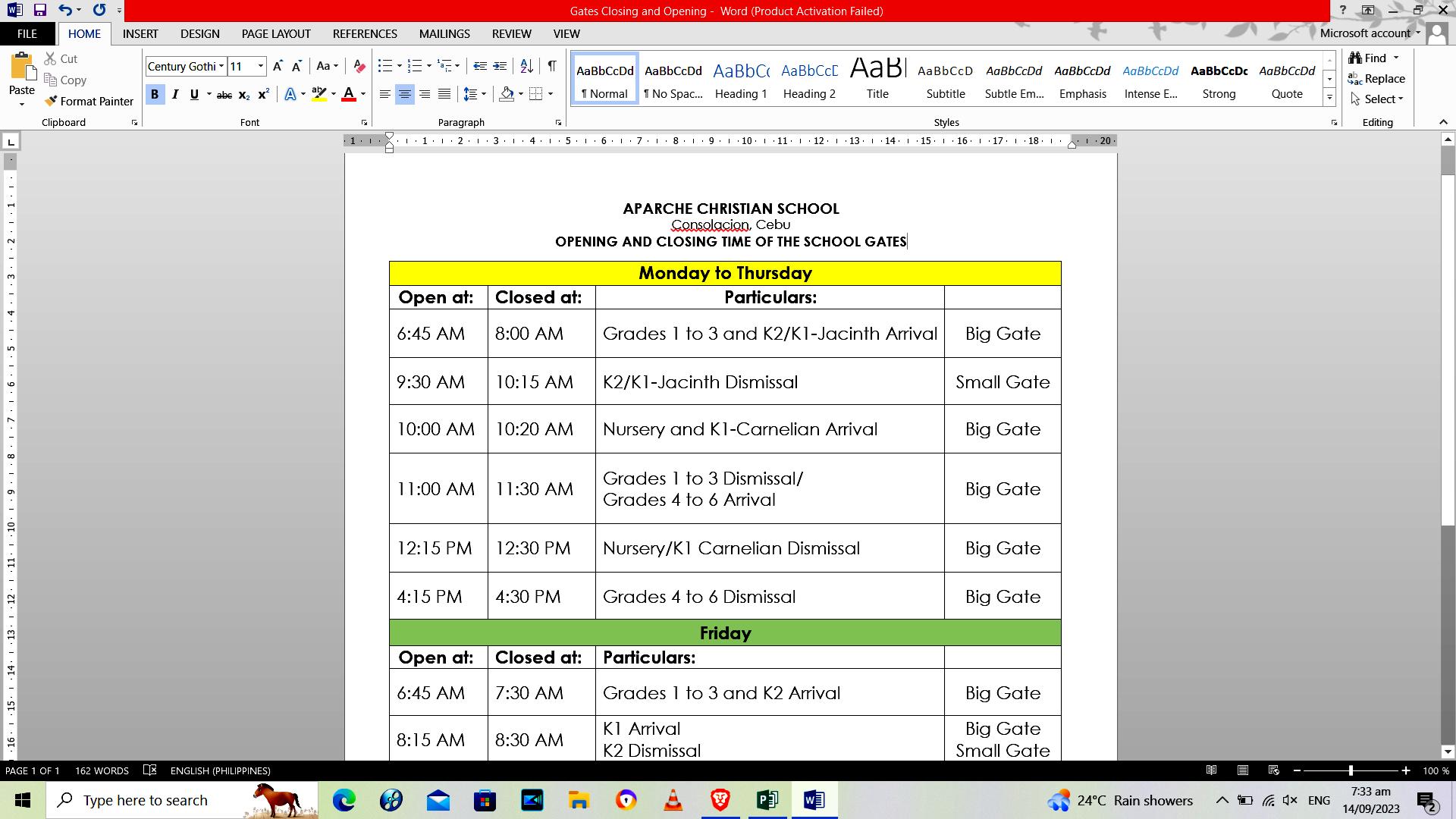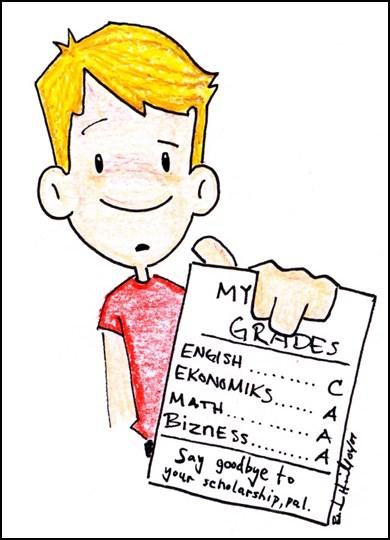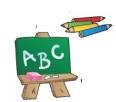SCHOOL DISTINCTIVE
Individualized Learning
Bible-based Values Foundation
Academic focus in Reading, Math and Science
Love for Books and Reading with Comprehension
A Second Foreign Language (for Elementary)
It is our belief that each child is a unique and valuable individual. The many outside influences such as home, family and environment have a hand in shaping the personality as well as the behavior of the child. Each child will bring into the school his/her own method of reacting and responding to the world around him/her as well as he/she will also bring with him/her his/her interests, talents and abilities.
It is our desire to partner with you and your child to establish a three-way connection between the staff, families, and the children. We will provide loving, yet firm guidance in order to help the child grow in his/her independence and self control.
We believe that each child learn by active participation, exploration and discovery. We will provide a stimulating and enriching experience for each child in preparation for later academic learning. It is our goal that each child regardless of his/her level of development or interests, will be challenged and stimulated to develop and mature.
Planned within the framework of philosophy and purpose, the curriculum includes Bible instruction, sharing and conversation time, stories, songs, creative art activities and crafts, music and movement activities, and games.
A Christian emphasis is infused throughout the program. We believe that if a child leaves ACS with a healthy self esteem, strong sense of dependence on God, an enthusiasm for living and learning, and having acquired the necessary academic skills, he/she will be prepared to meet the challenges and changes that will face him/her in the future.
SCHOOL PROGRAM
The school provides pre-elementary courses as well as Grade One, Two Three, Four, Five and Six.
SCHOOL TERM
The school term follows the public school calendar for regular students. First semester is June-October, second is November-March, with Semestral and Christmas Break. Our school follows the school year prescribed by the Department of Education (DepEd). The school observes the holidays declared by the DepEd. Days of parents’ conferences with teachers and programs, as well as teachers’ seminars are counted as school days.
As per curriculum design and DepEd regulations, elementary learners will only be promoted to the next level at the end of the school term. No acceleration will be done with in the school year.
ADMISSION PROCEDURES AND REQUIREMENTS
ACS accepts learners regardless of race or creed. For preschool, learners are designated to class levels according to age as follows:
Nursery - Age 3 (by August)
Kinder 1 - Age 4
Kinder 2 - Age 5
Application for admission should be accompanied by the following:
New Learner:
- Result of Qualifying Assessment
- Report Card from Previous School
- Photocopy of Birth Certificate (PSA)
- 1x1 ID Pictures (2 pcs.)
- Medical Certificate
Returning Learner:
- Deposit /Reservation Fee
- Report Card (Graders)
*Once enrolled, all admission requirements are considered school property and cannot be withdrawn anytime for whatever purpose/s.
Tuition Fees - A separate fee schedule with current information on application of fees and tuition rates is given to the parents upon enrollment.
Monthly tuition fee is due starting July 31 and ends on March 15. 4
THE CURRICULUM
Elementary Department
Grade 1 (7:00 am to 11:05 am)
*English (Reading/Language/Writing)
*Math
*Science
*Values
*Civics
**Clubs (Practical Music Course (PMC), PE and Health, Arts, French)
*Homeroom: Character First
Grade 3 (7:00 am to 11:05 am)
*English (Reading/Language/Writing)
*Math
*Science
*Values
*Civics
*Filipino
**Clubs (Practical Music Course (PMC), PE and Health, Arts, French)
*Homeroom: Character First
NURSERY
10:15 am to 12:15 pm
*Reading
*Writing
*Math
*Values
Integrated Subjects (Science/PLS)
*PE/Arts/Music
Grade 2 (7:00 am to 11:05 am)
*English (Reading/Language/Writing)
*Math
*Science
*Values
*Civics
*Filipino
**Clubs (Practical Music Course (PMC), PE and Health, Arts, French)
*Homeroom: Character First
Grades 4 –6 (11:30 am to 4:15 pm)
*English (Reading/Language/Writing)
*Math
*Science
*Values
*Civics
*Filipino
*HELE
**Clubs (Practical Music Course (PMC), PE and Health, Arts, French, Computer)
*Homeroom: Character First
Preschool Department
Kinder 1 8:00 am to 10:00 am
*Reading
*Writing
*Math
*Values
Integrated Subjects (Science/PLS)
*PE/Arts
Kinder 2 7:30 am to 10:00 am
*Reading
*Writing
*Math
*Filipino
*Values
Integrated Subjects (Science/PLS)
*PE/Arts
Our Practical Music Program (PMC) is handled by the ACS teachers. Learners may take ukulele, guitar, keyboard, voice or, dance lessons. Learners are encouraged to learn the same instruments in 2-3 years. Changing instrument to take will only be allowed until the second meeting of the PMC Classes.
PRACTICAL PREPARATIONS FOR SCHOOL
* Dress Code
• Learners are required to come to school in prescribed uniform from Monday through Thursday.
• Friday is PE day. Children should come to school in the prescribed PE uniform for preschool and Team t-shirt for elementary with jogging pants and rubber shoes.
(Things to bring in a small bag on Friday: white and yellow notebook for Elementary; snacks bag for preschool).
• Pursuant to EO #7, s. 2022, wearing of masks is optional.
• Learners are discouraged from wearing expensive jewelries. The school will not be liable to any loss of such kind. For safety reasons it is not recommended that girls wear necklaces, bracelets or dangling earrings.
• Hair should be neatly combed at all times. Bald or punk styles and hair dyeing are discouraged in our school.
• Learners are not allowed to wear only their undershirt (sando) while in school campus before and after school.
• Nannies and Guardians are discouraged from wearing very short shorts and skimpy clothes within school premises.
Three weeks after opening of classes, learners are expected to wear the prescribed uniform.
*On Toys
No child is allowed to bring his/her toys unless it is part of his/her homework. This causes dissension among learners and the school cannot be responsible for broken or lost toys brought to school.
*Snacks
Elementary
1. Learners are advised to bring nutritious snacks with him/her in coming to school.
2. Junk foods such as candies, sodas and chips are not allowed in school.
3. Snacks are also available in the school canteen.
Preschool
K2 learners are provided with ACS book bag. Learners will only bring the books needed for school/homework.
They may bring snacks and water on the snacks bag provided. Water may be refilled in school.
*On Trash
The school is practicing the “clean as you go” policy. Elementary learners are to bring their own pet bottle (that fit in his/her bag) for trash disposal. Trash that won’t fit in the bottle will be brought home.
Preschool learners are to throw their trash in pet bottles provided in school.
*Classroom Materials
1. All books and materials should be covered with plastic cover to keep them clean and neat.
2. Bring all books and notebooks as scheduled except for the white notebook (Communication NB) which should be brought every day.
3. Textbooks are materials to be used with the teachers’ supervision. Intentional advance works on textbooks will automatically be marked with a failing grade. Text books with markings insinuating the correct answers will get zero (0) for a score. Textbooks left at home during an activity will only get 50% of the score.
4. Homework should be done only on pages assigned by the teacher, never in advance. All learners are required to do their homework diligently.
5. Text book instructions may be altered by the teachers.
*Tutorial Policy
Tutorials to be conducted by the teachers with ACS learners should be pre-arranged through the office at least one week before the desired schedule. Tutorials will be done in school until 6 PM only. Payments should be coursed through the office and may be included in the monthly bill.
NO TUTORIALS will be entertained if the schedule is not pre-arranged. Payment is 250/hour.
*Arrival/Departure
1. The parents/guardian/nanny may accompany the learners to prescribed areas for drop off. Let the child carry his/her things to the classroom. Teachers cannot entertain parents during class hours.
2. Parents and drivers are requested to follow the parking plan of the school. No parking will be allowed along the main road in front of the school gate. Parking space is provided near the V and G Basketball Court. Please take note of the opening/closing time of the main gate.
Every Monday and Friday, flag ceremony will be at 6:50 am. (Grades 1 to 3 only). Grades 4-6 will have flag retreat on Fridays (4:10 pm).
3. No parent/nanny is allowed inside the school campus during class hours except for those with official reasons.
4. Learners are not allowed to go out of the school campus before class dismissal without their fetchers. Fetchers need to secure pink slip from the office for early dismissal with valid reason.
5. All learners are expected to stay in campus during class hours and are expected to leave the school premises within thirty minutes after the dismissal.
6. Learners will be released only to fetchers after dismissal upon presentation of the “School Fetchers Card” at the gate. If a person arrives to pick up a child appears for any reason to be incapable of providing safe care, the child in question will not be released. Parents will be informed.
7. Because our staff is contracted for specific hours and have personal needs for their off-time, it is essential that all children be picked up PRIOR to the posted closing time. 8
8. The school is protected by CCTV. However; pursuant to RA No. 10173, otherwise known as the Privacy Act, the school reserves the right to maintain the privacy and confidentiality of the CCTV video feeds and records. Thus, parents are only allowed to view these recording when deemed necessary as stated in section 7 of House Bill No. 4966 or the CCTV Act.
*Suspension of Classes
If and where there is a transport strike, classes are suspended due to the fact that teachers as well as school personnel in charge of the care, safety and instruction of the children might not be able to come to school.
Classes are automatically cancelled when Signal No. 1 or orange/red rainfall warning is sounded off by PAGASA or the LGU in Cebu. If classes are already in session when the signal is made, they will continue until dismissal time. Learners may be released if the parent/ yaya comes earlier to pick them up.
*Attendance/Absence
1. A grade school learner in the private school who incurs absences of more than 20% of prescribed number of class hours during the year should be given a failing grade.
2. Learners who incur absences due to COVID are excused but will do all missed tasks within a week after returning back to school.
3. Extra curricular activities like field trip, Family Day, camps (if allowed by IATF) will be voluntary. If a learner cannot join these activities, they will be given other tasks to compensate participation.
4. Upon returning to school, an absentee must bring a letter from the parents stating the reason for the absence/s on the inclusive dates or a medical certificate.
5. Learners are expected to attend classes daily and punctually throughout the school year. Elementary learners who incur 3 tardiness in a Quarter will not be allowed to go inside his/her classroom unless the parents are contacted through the Office. Parents’ copy of deportment will be sent home every Friday.
DISCIPLINE POLICY
Romans 13:1-2, “ Everyone must submit himself to the governing authorities, for there is no authority except that which God has established. The authorities that exist have been established by God. Consequently, he, who rebels against the authority is rebelling against what God has instituted, and those who do so will bring judgment on themselves.”
Discipline describes the teaching/learning process by which children develop socially acceptable and appropriate behavior as they grow to maturity. Discipline is something that caring adults do with 9
and for their children, rather than to stop them from behaving in undesirable way.
One of the primary goals of Aparche Christian School is to help young children learn to live and grow in relationship with others. Skills such as sharing, taking turns, and cooperation with teachers and classmates are important for a successful educational future. We believe in discipline that is firm, yet loving.
Our guidance and discipline is based on a positive, nonpunitive approach. Discipline methods such as spanking, yelling, or demeaning a child in any way, are non-acceptable practices in our view and will not be used at any time. Our objective is to assist children in developing self-control, self-confidence, and ultimately, self-discipline, in their interactions with others. Children will receive warning for unfavorable behavior and/or be redirected to another activity. If the child chooses not to follow the rules of the school or the teachers’ directions, the following disciplinary actions may be taken:
*Elementary Discipline Policy
SANCTIONS FOR SCHOOL OFFENSES
A. MINOR OFFENSES
General Sanctions for Minor Offenses
1. If a learner commits an offense that is not classified as minor/major but are agreed classroom rules, s/he will get a verbal warning from the teacher and one star will be taken out from the star behavior monitoring.
MINOR OFFENSES IN SCHOOL
1. Loitering without hallway pass
2. Doodling during class hours
3. Bringing a toy or any electronic gadget
4. Marking the books and notebooks of classmate
5. Intentional defacement of things in school
6. Vandalism
7. Stepping and sitting on tables
8. Stepping and rocking of chairs
9. Name calling/Teasing
10.Chewing of gum
11.Deliberate taking-off of clothes
12.Spitting anywhere
13.Littering
14.Not following prescribed time for playing in the playground
15.Picking of flowers
16.Urinating in inappropriate places
17.Not flushing the toilet after use
18.Throwing garbage into the toilet bowl
19.Peeping through the CR
20.Going out of the gate without permission
2. On the first offense, the parents will be informed by the teacher (in coordination with the Homeroom Teacher) through the communication notebook. The parents must sign the “Warning Slip” and send it back to the Homeroom Teacher.
3. On the second offense, the learner will be sent to the Principal’s Office. The parents will be informed regarding the offense through the grey slip issued. The parents must sign and send it back to the Homeroom teacher.
4. The parents will be informed through the grey slip if the same offense (3rd time) is committed within the quarter. The parent and the child will see the principal for counseling and sign an agreement that if the same offense will be committed, the parents will be called to the office for the child to undergo a one day “retreat”. The learner will receive a rating of 80 on the behavior component of his/her deportment grade for that quarter.
5. If the same offense is committed, the learner will be sent to the office for a two-day “retreat.”
B. MAJOR OR GRAVE OFFENSES IN SCHOOL
General Sanctions for Grave or Major Offenses
1. For first offense, the learner will be sent to the Principal’s Office for investigation and counseling. Parents will be informed of the offense committed through the Grey slip The parents and the learner will be called to the office to sign an agreement. The learner will receive a deduction of 2 points on the behavioral component of his/her deportment for the quarter.
2. On the second offense, the child will be sent to the office for investigation and counseling. Parents will be notified of the offense committed through the grey slip. The learner will undergo counseling sessions. The learner will have a one day “out of school campus retreat”, and will receive a deduction of 3 points on the behavioral component of his/her deportment for the quarter.
MAJOR OFFENSES IN SCHOOL
1. Open defiance against authorities (includes not completing the Grey Slip issued by teacher)
2. Violating COVID protocols. On coming in to school sick– As prescribed in this school handbook, learners shall not report to school if s/he or any of the family member is sick.
3. Truancy (Leaving the school without permission/cutting classes)
4. Use of filthy language
5. Writing/Drawing/Saying obscenities and hurling verbal threats
6. Fist Fighting
7. Bringing to school any “deadly weapon” or sharp objects
8. Gambling of any form
9. Smoking cigarettes
10. Organizing, recruiting or joining fraternities, sororities or gangs.
11. Cheating
12. Stealing
13. Deliberate Damaging of School Property
14. Collecting money or anything without authorization from the principal. (Mangutong)
A child caught cheating in any assignment, seatwork, test, or test score will receive zero (0) for a score for that particular activity. Text books with markings insinuating the answer will have zero (0) for a score, regardless who made the markings.
Telling a lie is considered a form of cheating. Answers in the book that are not of the child’s handwriting is also considered cheating.
First Offense:
Pay for what was stolen 10 times the price, or replace the item stolen with a new one, within one week from the counseling session.
Second Offense:
Pay up to 20 times the price (in an increasing manner)
Pay for or replace the damaged property.
15. Use, Sale or Possession of Drugs and Alcoholic Beverages
First Offense:
Suspension for 3 days. A warning for expulsion will be given.
Second Offense: Expulsion. No re-entry to ACS the next school year.
*This includes selling of online accounts involving ACS learners as clientele.
First Offense:
Parents will be called during the inspection. They will do the search in the Principal’s office. Results will be kept in strict confidentiality. Out of school suspension for three days
Warning for expulsion
Second Offense: Expulsion
3. If a third offense is committed, an investigation will be conducted. The learner will undergo a series of counseling sessions. The parents and the learner will be informed of the two days “outside school campus retreat” for the learner. The parent and learner will sign an agreement which will include an advice to transfer for the next school year. The learner will receive a rating of 75 on the behavior component of his deportment grade for that quarter.
4. If another offense will be committed, the learner will be recommended for exclusion from this school. All records will be prepared for the learner to be transferred to another school immediately.
WEEKLY STAR MONITORING
To encourage positive behavior and discipline in the classroom, the Behavior Monitoring system is practiced weekly.
Learners’ names are placed on a chart with five levels. All learners start each Monday at Level 1 – Excellent Behavior. For each instance of not following classroom rules, a learner’s name will move down one level:
•Level 1 – Excellent Behavior (starting point)
•Level 2 – Reminder Level (first instance)
•Level 3 – Caution Level (second instance)
•Level 4 – Warning Level (third instance)
•Level 5 – Final Level (fourth instance)
If a learner reaches Level 5, a grey slip will be issued as a formal record of disobedience and will be communicated to parents or guardians. This system gives learners several opportunities to correct their behavior before any formal action is taken. Every Monday, the chart resets so each learner has a fresh start for the week.
• For every slip issued, the following points are to be deducted from the Behavior component of the Deportment Grade:
- Grey (Class Rules/Minor) (1 point)
- Grey (Major) (2 points)
• Three Grey slips within a semester disqualifies a learner to join the Camp and Awards Day.
• Deportment slips will be issued to learners with incomplete uniform as well as those who are tardy.
*Preschool’s Discipline Policy
1. Time-outs: A time out is a time by themselves, away from other children and the activity at that time. Time outs last for approximately 515 minutes depending on the age of the child. This time-out is not a punishment but rather a time when the child need to calm down, remember what behavior the teacher is asking for, and decide for him/herself when he/she is ready to rejoin the group with appropriate behavior.
2. Sent to the office: If attempts to handle discipline situations within the classroom are not effective, the child will be sent to the office to discuss the problem with the principal.
3. Parent/Teacher Conference: If the behavioral problem is still taking place after the child has had several time outs or has had a significant behavioral challenge, a parent/teacher conference will be requested. This will be a time to discuss what has been happening and how you, the parent, and the teacher can work together to resolve the problem.
4. Learners with incomplete uniform as well as those who are tardy will be given a Deportment slip. 13
*Should parents have concerns about instances that happened in the classroom involving “other children” in class, parents may call the office. No parent/nanny can deal with “other children” in class for occurrences that happened in the classroom. No parent/yaya could scold or threaten any other children in school.
LEARNERS’ HEALTH POLICY
1. A medical form must be on file in school before the child can participate in the school program. Anything that has an adverse effect on your child, whether physically or emotionally should be mentioned to the school staff beforehand. Items included could be: medication the child maybe taking, special family situation, etc. These disclosures will be held as confidential information. We need these information for the comprehensive understanding of your child so that we can constantly be aware of his/her physical and emotional well-being.
2. All parents must supply the school with the name of a reliable person (a relative or friend) who can act as alternate care for your child in case of sickness or accident. In the event that the parents cannot be reached, this alternate person will be contacted.
3. To insure the health safety of each Aparche pupil, a "24 hours Fever Free Policy" will be imposed. Similarly, do not let your child go to school if any family member exhibits COVID-19 symptoms. More so, any child suffering from any communicable disease (mumps, measles, chickenpox, etc.) or any skin infection (ringworm, scabies, pink eye, lice, etc.) shall be sent home. They will not be permitted to return without a written clearance slip from their doctor.
Absences due to COVID (symptomatic, asymptomatic, close contact) are excused but learners need to check on their Google Homeroom classroom for book pages/activities to be worked-out. Consultation time may be arranged through the Office in case a learner needs help in any of the tasks assigned. These will be checked upon returning to school.
4.The health and well being of the child are of primary importance. Please check your child's temperature every morning BEFORE admitting him/her to class. If you suspect your child is ill, or if anyone of the following symptoms is present, PLEASE notify the principal:
- Headache
- Nausea, or has vomited within 24 hours
- Listless, drowsy, unusually tearful
- A runny nose with a green or yellow discharge
- Frequent cough or cough that produces a green or yellow sputum
- Sore throat, red throat, enlarged tonsils, or difficulty swallowing.
- Diarrhea or gray/white stool.
- Red, inflamed eyes 14
- Unusual rash or spots on skin
- Open, draining wounds
- Head lice
This health policy has been drawn up with the interest of all the children in mind. We must consider the well-being of the group as well as the individual child. It is neither right nor fair to subject healthy children to unnecessary illness when it can be prevented otherwise.
FINANCIAL MATTERS
• Tuition fees for one full year is payable in nine (9) monthly installments (August to April)
• Upon enrollment, the miscellaneous fees plus books shall be paid in full.
• A 5% discount on tuition will be given upon full payment of tuition fee during the enrollment period.
• A 20% discount tuition fee for the third child will be granted for every three children enrolled.
• Learners whose virtual Passbooks are not updated during the Quarter forfeits being in the Achievers List.
• Settle all your accounts with the Treasurer/Cashier on or before your due date as indicated in your Statement of Account (SOA).
• A Final test Permit will be issued during the Final Assessment.
• All financial matters are to be coursed through the office. No teacher or staff is allowed to enter into any financial transactions directly with the parent.
• Parents of children who are ill for a month or so, or parents who bring children on a trip causing absence for a prolonged period from school are still required to pay the tuition charges of the months when their child did not actually go to school.
• Non-completion of the school year: Once paid, fees are nonrefundable. To secure or retrieve the student’s credentials, applicable fees should be paid.
• No certificate of completion or completion grade will be awarded in the case of incomplete or partially completed course work; nor in the event of non-payment or partial payment of fees.
Tuition Fee Increase
There is a standard minimum of fifteen percent (15%) tuition fee increase every school year to continuously uplift and provide qual- 15
ity instruction, better facilities and continuing faculty development programs and to meet rising operational costs.
Transferees
Transferees from other schools seeking enrollment anytime during the school year shall be assessed in full. But transferees seeking enrollment after October 31 will have to pay the registration fees in full and pay the tuition only for applicable months. Complete set of books is still required.
Refund
Parents who wish to transfer or withdraw their children should do so in writing, addressed to the School Principal, within two (2) weeks from the beginning of classes, subject to the following terms and conditions:
• A learner who will withdraw after the second week of classes have started will be charged of all the school fees in full.
• An amount equivalent to 75% of the total registration/ miscellaneous fees and tuition fees already paid to the school will be refunded, if the child is officially withdrawn from our school before the official class day starts in June.
• An amount equivalent to 50% of the registration fee only will be refunded, if the child is officially withdrawn after the first day of class and before August 30. After this date, no refund shall be made. The books are considered sold
• A learner who withdraws after the second week of classes has started will be charged and has to pay all school fees in full.
Gifts
ACS staff are not allowed to accept any monetary gifts from learners or parents.
EXTRA-CURRICULAR ACTIVITIES and CLUBS
Extracurricular activities like Family Day, Recognition Day and other related activities that are to reinforce learners’ learning experiences. These are considered regular school days. These activities do not compel a learner to join/participate. If a learner cannot join/participate, s/he will be given other task to compensate nonparticipation.
Expenses for these extracurricular activities and school programs like the Family Day and Recognition Ceremony, where paraphernalia, rental of venue and the like are needed, will be collected on pro-rated basis, as needed.
SPECIAL EXAMS
Special Exams will ONLY be given to those learners whose absences are solely due to illness. We will require a MEDICAL 16
CERTIFICATE if and when the child gets sick during examination days prior to administering of special exams.
TESTING
• Monthly Summative Test
(These are long quizzes on major subjects) - Regular school day for all levels
• Quarter Assessment
(These are quarter tests in all subject areas) Preschool learners come on assigned time for one on one assessment.
GRADING AND HONORS SYSTEM
*Elementary
The K to 12 Grading System is employed in computing the learners’ grade (as per DepEd Order No. 8 S. 2015). Learners are graded according to three components, namely WRITTEN WORK, PERFORMANCE TASK and QUARTERLY ASSESSMENT.
Weight of Component for Grades 1 to 6
Components
• The sum of the Weighted Scored in each component is the Initial Grade; and will be transmuted using the given transmutation table to get the learner’s Quarter Grade.
• The average of the Quarterly Grades (QG) will be the learner’s final grade. A Final Grade of 75 or higher in all the learning areas allows the learner to be promoted to the next grade level.
• The Deportment Grade (Conduct) is composed of the following: - Behavior (to be graded by all subject teachers) 80% (Listening Skill/ Work Habits/Relationship with others/ Courtesy)
- Grooming (Uniform) 15%
- Punctuality 15%
Quarter Recognition
Each quarter, a learner who gets a general average of 90, with no grade lower than 80 in any subject will be given a recognition as an “Achiever” for the Quarter.
Deportment Award is to be given to those learners whose Deportment grade is 93 up and kept at least 95% of his/her stars in the behavior monitoring.
Year-End Recognition
• All learners will be given Behavioral Awards at the end of the school year.
• Learners whose Fourth Quarter average fall within the following category will receive the corresponding recognition:
90-94.99 – Academic Excellence (with Honors)
95–97.99- Academic Excellence (with High Honors)
98 up - Academic Excellence (with Highest Honors)
**with no grade lower than 85 in any subject in any quarter
The best in subject medal is awarded to the learner who gets the highest grade in the individual subject areas. (Minimum grade of 93)
Special Awards
Hall of Fame
Learners who achieve a general average of 98.0 at the end of the school year will earn the Hall of Fame award (the first time only).
President’s Award
Learners who garner 98.0 three times while in the elementary department will be given this award. Also, he/she will be reimbursed a portion of his/her Grade 6 tuition fees.
*Preschool
The school adopts the K to 12 Education Program grading system which is a standards and competency based grading system (as per DepEd Order No. 8 s. 2015). Checklists and anecdotal records are used to track the learner’s progress in school. These are based on learning standards found in the Kindergarten curriculum guide issued by the Department of Education.
Year-End Recognition
• Recognition is given to learners who excel in the different learning areas.
• All learners will be given Behavioral Awards at the end of the school year.
Graduating Class Awards
- Loyalty Award is given to a Grade 6 learner who has been with ACS for 6 years in the elementary. The same award will be given to a K2 learner who has been with ACS for 3 years in preschool.
- Effort Award is given to a graduating learner who did not qualify for honors but showed valuable effort in the Academics.
COMMUNICATIONS & REPORTS
* General Communication
From time to time, letters or information will be sent to the parents, written or stapled on the child's Communication Notebook. Please check from time to time your child's Communication Notebook. If you want to communicate with the school, use the same notebook as well.
* Report Sheets
Report Sheets will be issued virtually through the Google Homeroom classroom at the end of each quarter.
Report Cards for the final quarter will be issued a week after the commencement exercises, and must be promptly claimed before the teachers will go on summer vacation. In case of damage or loss, a fee of P200.00 must be paid for the second copy of the original.
*Parents Concerns
Should you need a parent-teacher conference or address any school concerns, please schedule it in advance through the office or call 032-3496569 or 09231212877 (Monday to Thursday at 7:00 AM to 3:00 PM). Please do not use the Social Media (i.e. Facebook, Instagram, Twitter) in airing these concerns.
*Home Visitation
Within the first semester, ACS teachers visit new learners (with parents’ approval) in their respective homes to be able to know them better and serve them well in school.
*Accident Insurance Coverage
ACS avails Annual Accident Insurance coverage. Accident expenses refund will be released to parents by the insurance company upon submission of official receipts with the attending physician’s certification.
CELEBRATIONS
• Birthdays
Birthdays are very special to children. We will acknowledge each child’s birthday by singing a birthday song and saying prayer of thanks to God for His loving care on our birthday celebrant. June and July celebrants will be acknowledged in May.
If parents choose to, you are welcome to celebrate your child’s birthday at ACS but it is not compulsory. You may celebrate in the following ways:
a. Provide simple nutritious birthday snack for your child’s class. Inform the teacher earlier about the snacks provision. (NO junk foods/softdrinks/candies please!)
b. Donate a Birthday Book (optional)
Your child may donate a book for his/her class Reading Corner.
• A story book which does not promote magic or glorify fairy tales.
• Reference book (Science, History etc.)
• Must be age appropriate to the class which the book will be donated.
It may be labeled as:
“Presented to my school, ACS by ______________________ in honor of my ____ (6thd/9th) birthday, dated __________________.”
AUTHORITY TO PROMULGATE DISCIPLINARY RULES
ACS shall have the right to promulgate reasonable norm rules and regulations it may deem necessary, for the maintenance of good school discipline and class attendance. Such rules and regulations shall be effective as of the date of notification to learners and parents in appropriate school issuance such as letters, news letters, etc. from the school principal.
CONCLUSION
These regulations take the nature of school policies. They are not meant to be exhaustive. Since they are promulgated by the school authorities, the school reserves the right to add, interpret, amend, supplement, and apply these rules. The school authorities feel themselves to be the best judge of what is or what is not satisfactory performance.
CHILD PROTECTION POLICY THE MANDATE
Art. XV. Sec. 3(b). 1987 Philippine Constitution:
“the State shall defend the right of children to assistance, including proper care and nutrition, and special protection from all forms of neglect, abuse, cruelty, exploitation and other conditions prejudicial to their development…”
Article XIV, Section 3, (b):
“all educational institutions shall inculcate patriotism and nationalism, foster love of humanity, respect for human rights…”
Article 218, 220, 233 of the Family Code of the Philippines and PD 603
“gives the school, its administrators and teachers, or the individual, entity or institution engaged in child care the special parental authority and responsibility over the minor child while under their supervision, instruction or custody”…..
“Authority and responsibility shall apply to all authorized activities whether inside or outside the premises of the school, entity or institution….”
DECLARATION OF POLICY
Aparche Christian School in partnership with the Deped shall ensure that our schoolis conducive to the education of children. The best interest of the child shall be the paramount consideration in all decisions and actions involving children. Teachers are their substitute parents and are expected to discharge their functions and duties with this in mind.
ACS together with DepED shall promulgate a zero tolerance policy for any act of child abuse, exploitation, violence, discrimination, bullying and other forms of abuse.
OVERVIEW & HIGHLIGHTS OF THE POLICY
1. GOAL: effective implementation of a zero tolerance policy for any act of child abuse, exploitation, violence, discrimination, bullying and other forms of abuse.
2. PROHIBITED ACTS
a. “Bullying” refers to any severe, or repeated use by one or more students of a written, verbal or electronic expression, or a physical act or gesture, or any combination thereof, directed at another student that has the effect of actually causing or placing the latter in reasonable fear of physical or emotional harm or damage to his property; creating a hostile environment at school for the other student; infringing on the rights of another student at school; or materially and substantially disrupting the education process of the orderly operation of a school; such as but not limited to, the following:
**Any unwanted physical contact between the bully and the victim like punching, pushing, shoving, kicking, slapping, tickling, headlocks, inflicting school pranks, teasing, fighting and the use of available objects as weapons;
**Any act that causes damage to a victim’s psyche and/or emotional well-being;
**Any slanderous statement or accusation that causes the victim undue emotional distress like directing foul language or profanity at the target, name-calling, tormenting and commenting negatively on victim’s looks, clothes and body;
**“Cyber-bullying” or any bullying done through the use of technology or any electronic means. The term shall also include any conduct resulting to harassment, intimidation, or humiliation, through the use of other forms of technology, such as, but not limited to texting, email, instant messaging, chatting, internet, social media, online games, or other platforms or formats as defined in DepEd order No. 40,s. 2012; and
**Any other form of bullying as may be provided in the school’s child protection or anti-bullying policy, consistent with the Act.
The term “bullying” shall also include:
“Social bullying” – refers to any deliberate, repetitive and aggressive social behavior intended to hurt others or to belittle another individual or group.
“Gender-based bullying” – refers to any act that humiliates or excludes a person on the basis of perceived or actual sexual orientation and gender identity (SOGI).
“Bully” – refers to any student who commits acts of bullying as defined by the Act of this IRR.
“Bullied” or “Victim” – refers to any student who experiences the acts of bullying or retaliation as defined by the Act.
b. Child Abuse-refers to the maltreatment of a child whether habitual or not, which includes the following :
1. Psychological or physical abuse, neglect, cruelty, sexual abuse and emotional maltreatment.
2. Any act or deeds or words which debases, degrades or demeans the intrinsic worth dignity of a child as a human being.
3. Unreasonable deprivation of the child’s basic needs for survival such as food and shelter; or
4. Failure to immediately give medical treatment to an injured child resulting in serious impairment of his or her growth and development or in the child’s permanent in capacity death. (section 3) (b) RA 7610)
c. Corporal Punishment – refers to a kind of punishment or penalty 22
imposed for an alleged or actual offense, which is carried out or inflicted, for the purpose of discipline, training or control, by a teacher, school administrator, an adult, or any other child who has been given or has assumed authority or responsibility for punishment or discipline. It includes physical, humiliating or degrading punishment, including but not limited to the following :
1. Blows such as, but not limited to, beating, kicking, hitting, slapping, or lashing, of any part of a child’s body, with or without the use of an instrument such as, but not limited to a cane, broom, stick, whip or belt;
2. Striking of a child’s face or head, such being declared as a “no contract zone”;
3. Pulling hair, shaking, twisting joints, cutting or piercing skin, dragging, pushing or throwing of a child;
4. Forcing a child to perform physically painful or damaging acts such as, but not limited to, holding a weight or weights for an extended period and kneeling on stones, salt, pebbles or other objects;
5. Deprivation of a child’s physical needs as a form of punishment;
6. Deliberate exposure to fire, ice water, smoke, sunlight, rain, pepper, alcohol, or forcing the child to swallow substances, dangerous chemicals, and other materials that can cause discomfort or threaten the child’s health, safety and sense of security such as, but not limited to insecticides, excrement or urine;
7. Tying up a child;
8. Confinement, imprisonment or depriving the liberty of a child;
9. Verbal abuse or assaults, including intimidation or threat of bodily harm, swearing or cursing, ridiculing or denigrating the child;
10. Forcing a child to swear a sign, to undress or disrobe, or put on anything that will make a child look or feel foolish, which belittles or humiliates the child in front of others;
11. Permanent confiscation of personal property of pupils, students or learners, except when such pieces of property pose a danger to the child or to others, and other analogous acts.
“Violence against children committed in schools” -refers to a single act or a series of acts committed by school administrators, academic and non-academic personnel against a child which result in or is likely to result in physical, sexual, psychological harm or suffering, or other abuses including threats of such acts, battery, assault, coercion, harassment or arbitrary deprivation of liberty. It includes, but is not limited to the following acts: physical violence, sexual violence , psychological violence, and other acts of violence.
3. DUTIES AND RESPONSIBILITIES OF SCHOOLS
Ensure the institution of effective child protection policies and proce-
dures and monitor compliance thereof;
Ensure that the school adopts a child protection policy, organize and convene Child Protection Committee (CPC) for the school;
Conduct the capacity building activities for the members of the CPC and Guidance Counselors/Teachers;
Ensure that the participatory and other rights of children are respected and upheld in all matters and procedures affecting their welfare;
Coordinate with appropriate offices and other agency or instrumentality for appropriate assistance and intervention, as may be required in the performance of its functions.
4. PREVENTIVE MEASURES:
Capacity Building of School Officials, Personnel, Parents and Students
Strategies:
Conducting sessions, trainings and seminars on positive peer relationships and enhancement of social and emotional competence;
Using training modules which include positive and non-violent discipline in classroom management and gender sensitivity;
Employing of means which enhance the skills and pedagogy in integrating and teaching children’s rights in the classroom.
5. PROTECTIVE AND REMEDIAL MEASURES TO ADDRESS BULLYING
AND OTHER ACTS OF ABUSE PROCEDURES:
All bullying incidents shall be reported to the School Head.
The School Head shall in turn inform the parents of the pupils concerned and a meeting shall be held for that purpose.
The student shall be referred to the CPC for counseling and other interventions.
TheSchool may impose Non-punitive Measures in accordance with the principles of Positive and Non-Violent Discipline.
Punitive measures will be a last resort.
7. PROCEDURES IN HANDLING CHILD ABUSE, EXPLOITATION, VIOLENCE AND DISCRIMINATION CASES
1.Expeditious conduct of investigation and reporting of cases;
2.School Head or the Schools Division Superintendent shall forward the complaint within 48 hours to the Disciplining Authority, who shall issue an Order for the conduct of a fact-finding investigation,
not later than 72 hours from submission;
3.If the person complained of is a non-teaching personnel, the Schools Division Superintendent shall cause the conduct of a factfinding investigation within the same period;
4. Criminal and civil liability shall not be a bar to the filing of an administrative case;
5.The Revised Rules of Procedure of DepED in Administrative Cases shall apply in all other aspects;
6.The identity or other information that may reasonably identify the pupil or student shall remain confidential; and
7.The identity of a respondent-teacher shall likewise be kept confidential.
For detailed information regarding “The Child Protection Policy”, please refer to DepEd Order No. 40. s 2012.
School Committee:
Chairperson
Liberty B. Vicentillo, M.Ed. School Principal Members:
Ma. Magdalyn W. Figueroa Elementary Coordinator Class Advisers
Parent Representative
Personal information
Family Name: __________________________________________
Child/ Children’s Name: _______________________________
Home Address: _______________________________________
Residence Tel. #:______________________________________
Parents’ Names: (Father) (Mother)
Contact #:



